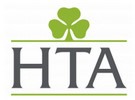On Thursday 20 February, a Plant Health and Biosecurity Meeting was held at Kew Gardens. Those invited included growers, importers, NGOs and retailers, who throughout the day heard from HRH Prince of Wales, Lord Gardiner, Parliamentary Under Secretary of State for Rural Affairs and Biosecurity and Nicola Spence, UK Chief Plant Health Officer. The HTA attended the meeting as a leading member of the Plant Health Alliance, with a long involvement in the promotion of strengthening biosecurity within the industry.
HRH Prince of Wales spoke strongly of his love for farming, forestry and gardening. He spoke of the vital role that trees play in our climate, and that nature needs to be put back at the centre of our economy. Before 2010, there were no environmental risks in the World Economic Forum Global Risks Report, now the report is dominated by them.
Don’t risk it…
Speakers throughout the day discussed the importance of biosecurity, with Nicola Spence highlighting the increase in advertising at airports stating not to bring back plants from abroad and Adam Frost endorsed the significance around this. Lord Gardiner stated that this year, the International Year of Plant Health, was an opportunity to raise awareness and strengthen biosecurity.
Science holds many of the answers to plant health challenges the UK faces, and the plant risk register contains over 1,000 diseases and pathogens already. Getting better at detection and inspection is vital in a nation with a passion for plant hunting. Lord Gardiner spoke of his support for a future consultation on stronger restrictions and quarantine for imported trees.
There was a strong belief that Government and the entire horticulture industry need to work together on this issue, and how, with the increase of plants on the high-risk host lists and rise in import restrictions, there has been no better time to work together and support each other through this vital topic.
Plant Healthy Certification Scheme
Alistair Yeomans outlined the Plant Healthy Certification Scheme to the audience, discussing how the scheme will first be targeting nurseries, before moving onto garden centres and then landscapers. Certification on this scheme means businesses meet the requirements of the Plant Health Management Standard.
Plant life is under threat from pests. For example, the 2019 IUCN European Red List of Trees indicated that 42% of European trees are considered as having a high risk of extinction with the primary threat being from invasive species i.e. plant pests.
To counter this threat, Defra’s Plant Biosecurity Strategy for Great Britain (2014) proposed the development of certification schemes to improve biosecurity in the UK horticultural sector.
Currently, two businesses (Oakover Nurseries and Delamere Nurseries) have completed their audits, and eight more businesses are lined up to be part of the pioneer group.
The Plant Healthy Certification Scheme aims to make it easy to identify businesses that supply plants that have been sourced and grown to high plant health and biosecurity standards.
This is with the aim of significantly reducing the risk of introducing/spreading destructive plant pests via plant supply chains.
It is hoped that the Certification Scheme grows to become the key voluntary measure for protecting the horticulture industry, cultivated plants and natural habitats. As the initial nursery audits have now taken place, it is expected that the list of certified horticultural businesses will start to grow over the coming months.
Getting involved
The first step for any business committed to ensuring biosecurity compliance is to take the free Plant Healthy Assessment at www.planthealthy.org.uk. This quick and easy assessment will give you a tailored report that sets out practical requirements and guidance for businesses to implement.
For those wanting to register their interest in taking part in the Plant Healthy Certification Scheme, there are details on the Plant Healthy website for when the scheme launches in summer.
For more information Horticultural Trades Association
Horticultural Trades Association
Horticulture House
19 High Street
Theale
Reading
West Berkshire
RG7 5AH
T: +44 (0)118 930 3132
Fax: +44 (0)118 932 3453
NGGV: +44 (0)118 930 2092
www.the-hta.org.uk
